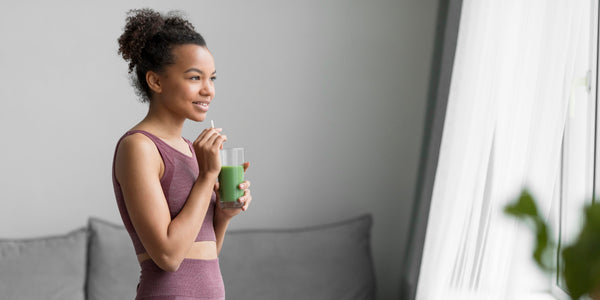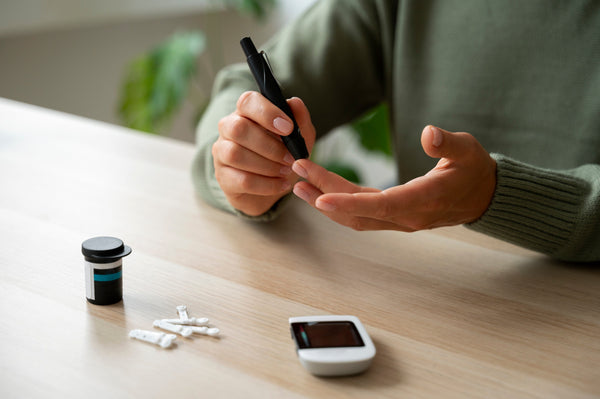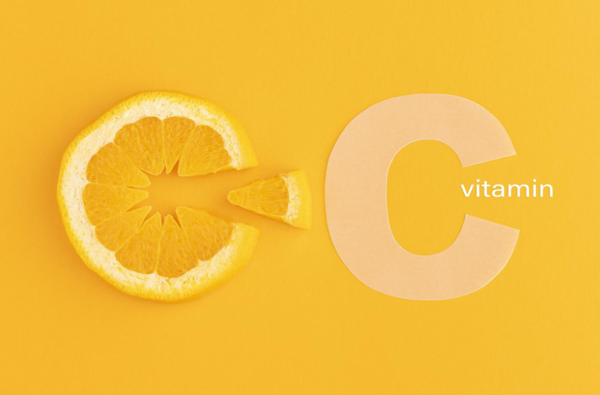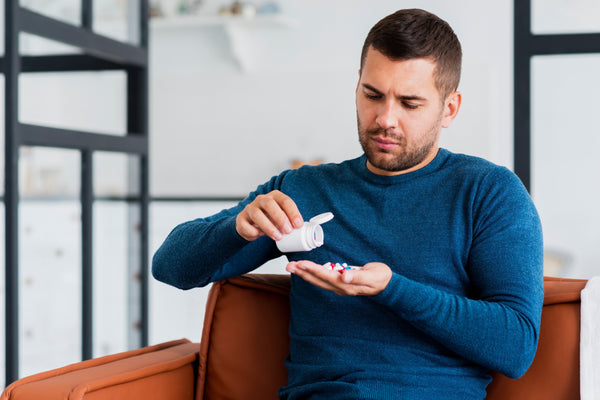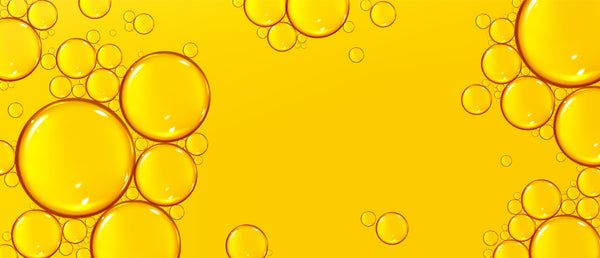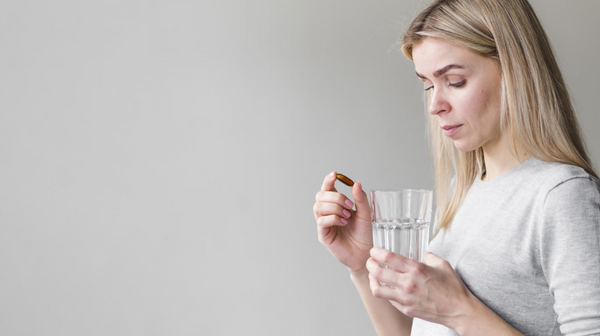
Iron is an almost indispensable nutrient for your body. After all, iron is essential for so many important functions, right from aiding in hemoglobin synthesis to ensuring adequate oxygen is transported to every cell of your body. However, because of blood loss (especially among women during menstruation) or due to the lack of iron-rich food, you may suffer from iron deficiency. And this can further cause several complications such as fatigue, pale skin, weakness, and even chest pain.
Fortunately, you can deal with iron deficiency or prevent it in the first place by consuming iron-rich foods. In this blog, we’ll list 10 amazing natural sources of iron that you can rely upon. In the end, we’ll also list one of the best iron supplements. So, read along.
Top 10 Natural Sources of Iron
Here are 10 natural sources of iron that you can include in your daily diet to avoid potential iron deficiency.
1. Spinach
Spinach is an amazing green vegetable that comes with plenty of iron and very few calories. A 100 grams of spinach(raw ) contains about 2.7mg of iron which is about 15% of the daily value.
However, iron in spinach is non-heme, which means it cannot be absorbed by the body completely. So, try adding some lemon or vitamin C-rich foods that could help enhance the non-heme absorption.
2. Shellfish
Although all shellfish are a great source of iron, mussels, clams, and oysters are particularly very good sources. For example, 100 grams of clam may contain up to 3 mg iron which is about 17% of the daily value.
3. Organ Meat or Liver
Organ meats such as heart, kidney, liver, brain, etc., are a good source of iron. For instance, a 100-gram serving of liver (beef) contains about 6.5mg of iron which is about 36% of the total daily value.
4. Legumes
Legumes such as lentils, soybean, peas, etc., are a good source of iron for vegans. One cup of lentils(cooked) contains 6.6mg of iron, which is 37% of the daily value.
5. Red Meat
Red meat is another great source of iron or heme iron, which is absorbed easily by your body. A 100-gram serving of red meat has about 2.7mg of iron or 15% of the daily value. You can also explore 5 Natural Sources of Iron to Make a Part of Your Daily Lives
6. Quinoa
Also known as a pseudocereal, quinoa is a tasty grain. One cup of cooked quinoa(185g) contains about 2.8mg of iron, which is 16% of the daily value.
7. Pumpkin Seeds
Pumpkin seeds are a remarkably tasty snack and a natural source of iron for vegans. 28 grams of pumpkin seeds contain around 2.5 mg of iron, which is 14% of the daily value.
8. Turkey
Turkey meat is quite delicious and healthy and offers a wholesome experience. A 100-gram dark turkey contains about 1.4mg of iron, which is about 8% of the total daily value. Know which Fruits and Vegetables That Are Rich in Iron
9. Broccoli
Broccoli is usually known for its rich protein content. But it also has a good iron content. 156 gram or one cup of broccoli contains 6% of the required daily value.
10. Tofu
It’s a soy-based product that resembles cheese and is quite popular in India among vegan gym enthusiasts. Half a cup of tofu (126g) contains about 3.4 mg iron, which is about 19% of the daily value.
Are the Above Foods Good Enough to Offer you the iron you need?
100 grams of spinach contains 15% of the iron you need in a day, while 28 grams of pumpkin seeds contain 14%. So, if you do the math, you’ll need more than 600 grams of spinach or more than 150grams of pumpkin seeds a day to meet the daily value, which is a lot and isn’t feasible for most people.
What’s more is that natural foods, which contain more iron content, come from animals. And this will be a problem for vegans as they can’t consume animal meat. So, while the above foods offer you the iron you need, it’s not a sustainable source. Then what is? Well, this is when iron supplements come into the picture.
And we have already found one of the best iron supplements you can rely on: Melts Nano Iron. Melts Nano Iron from Wellbeing Nutrition is one of the best iron supplements that tastes good and contains:
- Iron from India
- Organic spinach from the USA
- Organic beetroot from Poland
- Organic Swiss Chard from Sieily
- Organic pumpkin seeds from the USA
- Acerola cherry from the USA
The above ingredients can help:
- Improve iron absorption
- Prevent anemia
- Enhance hemoglobin production
- Increase red blood cell production
- Enhance energy levels
All these benefits come in a tasty oral strip form. You can just place an oral strip on your tongue, let it dissolve and you’re done. Yes, it’s that easy to consume. And this is what makes Melts Nano Iron one of the best iron supplements out there.
Wrapping Up
While there are numerous natural sources of iron, it’s hard for most individuals to produce and consume them daily. Fortunately, you can rely on iron supplements like Nano Iron Melts that contains concentrated iron extracted from natural sources.
References
Abbaspour, N., Hurrell, R., & Kelishadi, R. (2014). Review on iron and its importance for human health. Journal of research in medical sciences : the official journal of Isfahan University of Medical Sciences, 19(2), 164–174. https://www.ncbi.nlm.nih.gov/pmc/articles/PMC3999603/
Miller J. L. (2013). Iron deficiency anemia: a common and curable disease. Cold Spring Harbor perspectives in medicine, 3(7), a011866. https://doi.org/10.1101/cshperspect.a011866
Monsen E. R. (1988). Iron nutrition and absorption: dietary factors which impact iron bioavailability. Journal of the American Dietetic Association, 88(7), 786–790. https://pubmed.ncbi.nlm.nih.gov/3290310/
Geissler, C., & Singh, M. (2011). Iron, meat and health. Nutrients, 3(3), 283–316. https://doi.org/10.3390/nu3030283
Graf, B. L., Rojas-Silva, P., Rojo, L. E., Delatorre-Herrera, J., Baldeón, M. E., & Raskin, I. (2015). Innovations in Health Value and Functional Food Development of Quinoa (Chenopodium quinoa Willd.). Comprehensive reviews in food science and food safety, 14(4), 431–445. https://doi.org/10.1111/1541-4337.12135
Naghii, Mohammad & Mofid, Mahmood. (2007). Impact of Daily Consumption of Iron Fortified Ready-to-Eat Cereal and Pumpkin Seed Kernels (Cucurbita pepo L.) on Serum Iron in Adult Women. BioFactors (Oxford, England). 30. 19-26. 10.1002/biof.5520300103. https://bit.ly/3pn2Hy6













